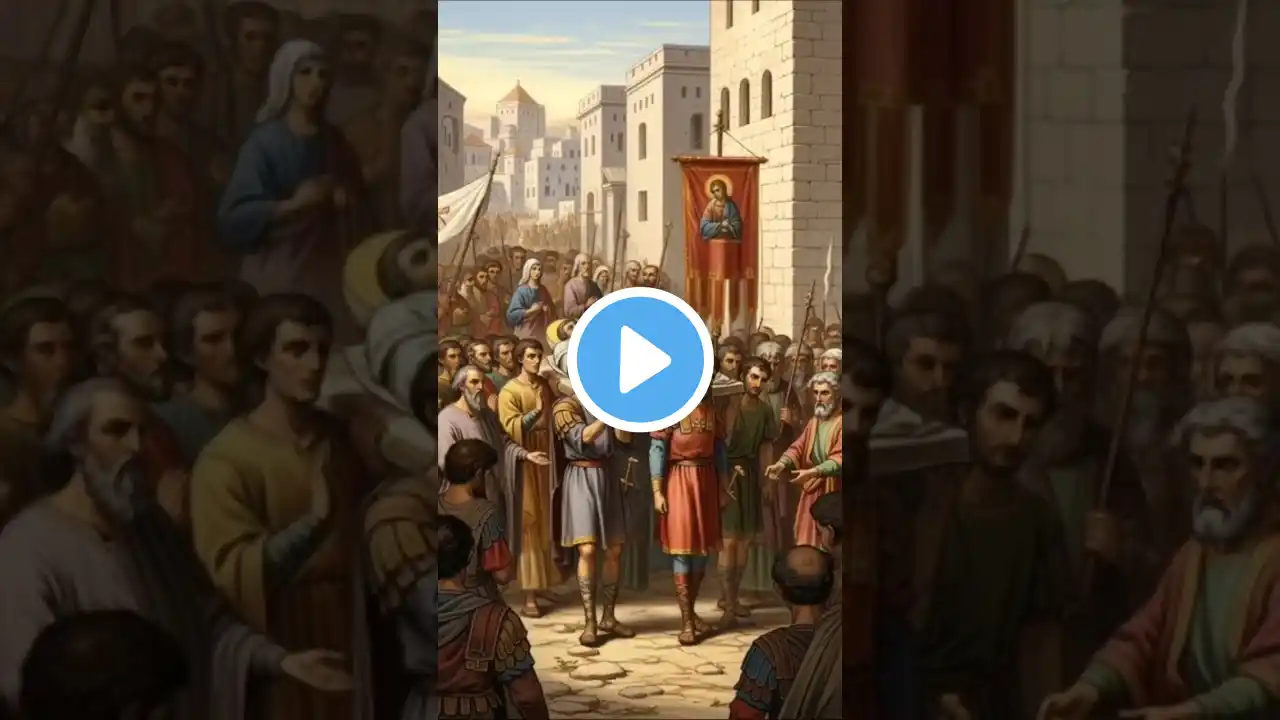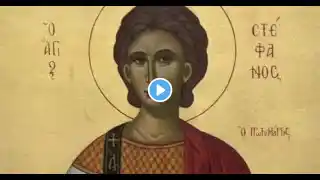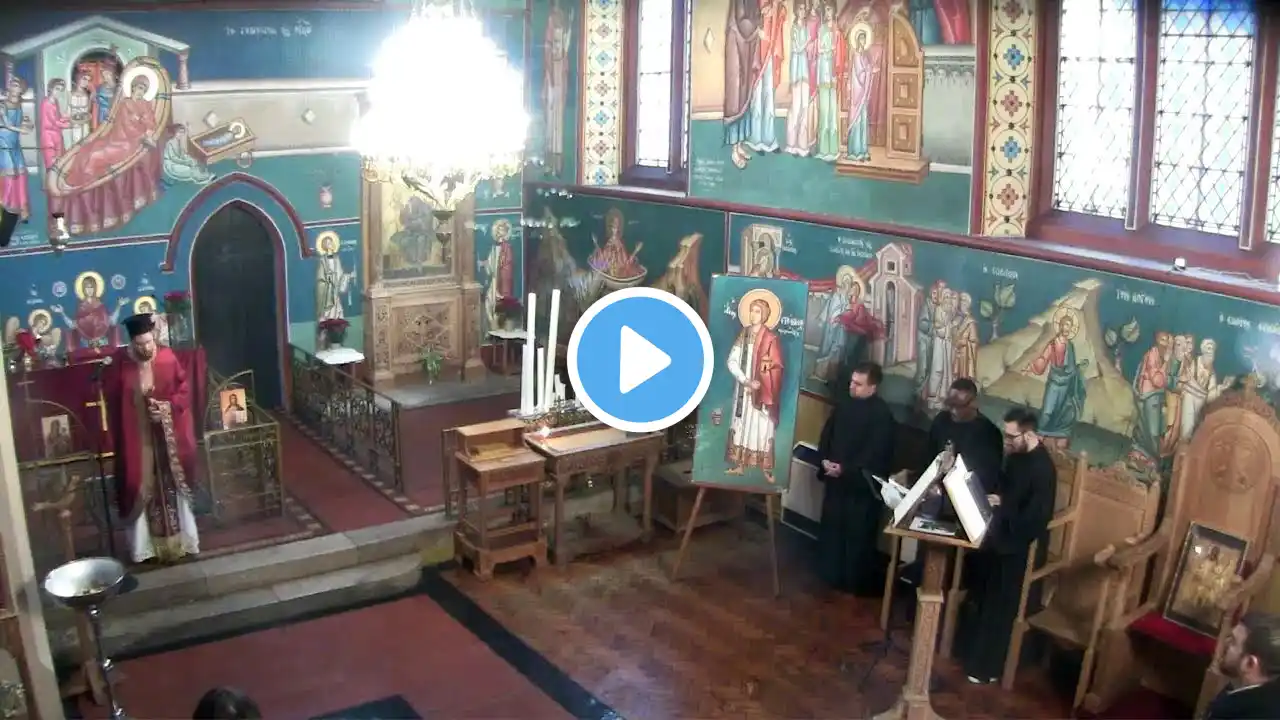
St. Stephen the Protomartyr & Archdeacon
St. Stephen the Protomartyr & Archdeacon (Commemorated on December 27) The Holy Protomartyr and Archdeacon St. Stephen was the eldest of the seven deacons, appointed by the Apostles themselves, and therefore he is called “archdeacon.” He was the first Christian martyr, and he suffered for Christ when he was about 30. In the words of Asterias, he was “the starting point of the martyrs, the instructor of suffering for Christ, the foundation of righteous confession, since Stephen was the first to shed his blood for the Gospel.” In order that the Twelve might devote themselves without distraction to prayer and to teaching as the number of disciples continued to increase, they decided to appoint seven of the brethren, who were well-respected for their wisdom and full of the Holy Spirit, to relieve them of the task of looking after the material welfare of the community, especially of waiting on the brethren when they ate together and of assisting the widows and the needy. The seven deacons upon whom the Apostles laid their hands were Stephen, Philip, Prochorus, Nicanor, Timon, Parmenas, and Nicholas. (Acts 6:1-6) The activity of Stephen, who was their head, extended well beyond providing for the material needs of the community. Being filled with the grace of the Holy Spirit, he worked miracles and spoke with the authority of a messenger from God. All the people admired him to such an extent that their leaders, angry because they were incapable of answering his arguments, brought him before the Sanhendrin, the high priest’s council, and accused him falsely of blasphemy and of intending to subvert the ordinances of the law. Filled with the Holy Spirit, Stephen preached Christianity and defeated Jewish teachers of the Law in debate. The Jews maligned Stephen, saying that he had uttered blasphemy against God and against Moses. Stephen came before the Sanhedrin and the High Priest to answer these charges. He gave a fiery speech, in which he recounted the history of the Jewish nation, and denounced the Jews for persecuting the prophets, and also for executing the promised Messiah, Jesus Christ. (Acts 7) During his speech, Stephen suddenly saw the heavens opened and Jesus Christ standing at the right hand of God. The Jews shouted and covered their ears, and rushed at him. They dragged him out of the city and stoned him, but the holy martyr prayed for his murderers. Far off on the heights stood the Mother of God with the holy Apostle John the Theologian, and She prayed fervently for the martyr. Before his death Stephen said, “Lord Jesus, receive my spirit. O Lord, do not charge them with this sin.” Then he joyfully gave up his pure soul to Christ. These inspired words sprang from Stephen’s mouth through the grace of God, which filled his heart and made it heavenly, while also spreading over his body, and illumining his face with a divine light as it illumined the Saviour on the day of the Transfiguration. (Matthew 17:6; Luke 9:29) All who sat gazing at him in the council saw him thus clothed in shining glory like an Angel (Acts 6:15) and they ground their teeth in hatred. Their anger burst forth when Stephen, lifting his eyes to Heaven and beholding the glory of God, and Jesus standing at the Father’s right hand as clearly as when He shall come at the end of time, cried out: “I see the heavens opened and the Son of man standing at the right hand of God!” (Acts 7:56) His purity was striking. Right before Stephen gives his account before the high priest and his council, we are told, “And gazing at him, all who sat in the council saw that his face was like the face of an angel.” And just a little before that, Stephen is described as “full of grace and power.” Stephen’s first and primary witness to the world was his inner peace and his pure heart. Even as the council is looking for ways to destroy him, they can’t help but notice God’s grace radiating through him. Unable to bear this revelation of the exaltation to Heaven of Jesus Christ and of His dwelling bodily in the Blessed Trinity, the Jews stopped their ears and, rushing on Stephen, they took him out of the city and stoned him. Stephen exulted with joy to be put to death after the example of his Master; and for him the stones they threw were so many steps up to the glorious vision of Christ which he had just caught sight of. He breathed his last like Jesus on the Cross, calling upon the name of the Lord with the cry of supreme love for his enemies: “Lord, do not hold this sin against them.” (Acts 7:60; Luke 23:34) Reached maxed capacity:



















